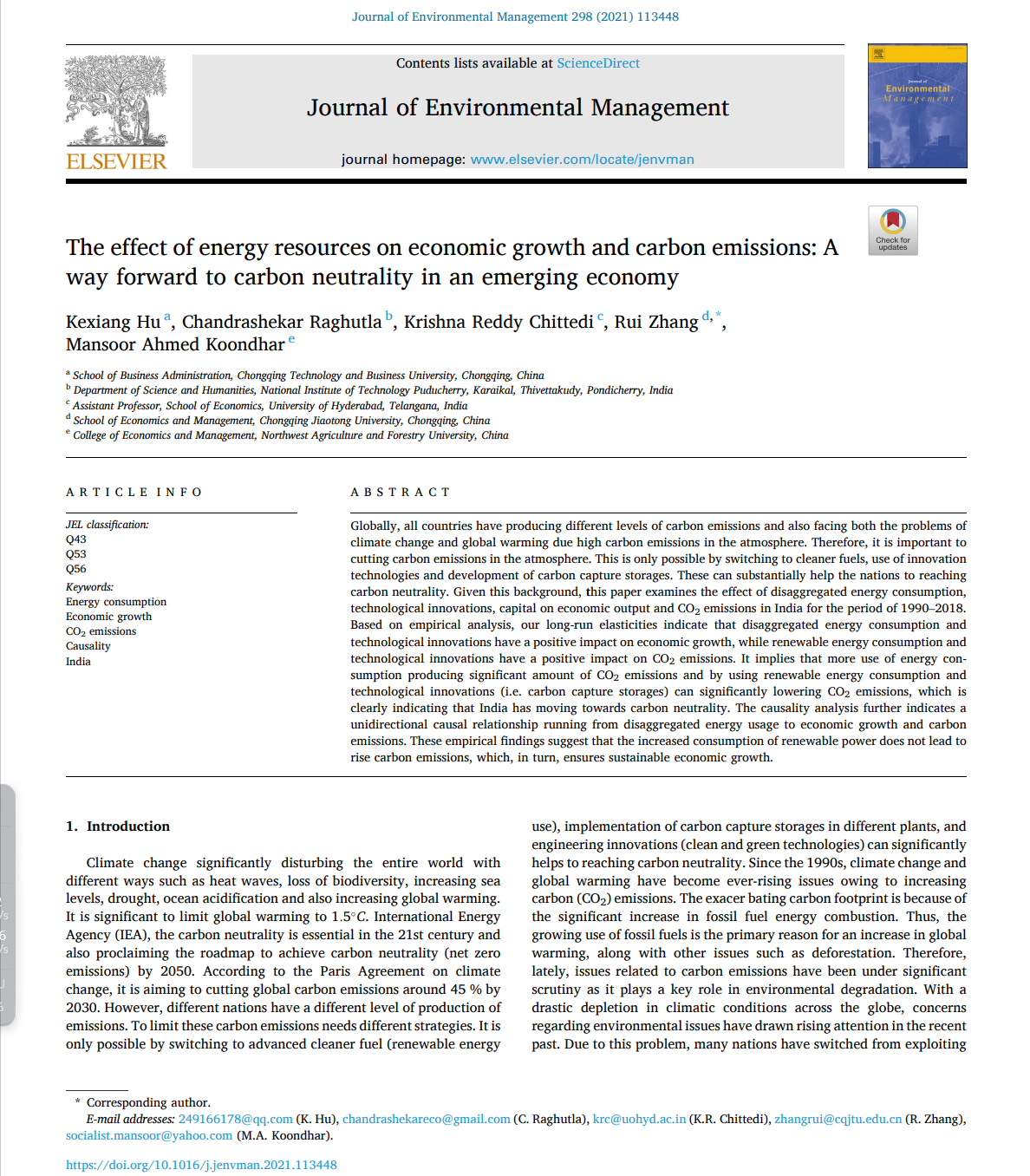【全文链接】
Hu K, Raghutla C, Chittedi K R, et al. The effect of energy resources on economic growth and carbon emissions: A way forward to carbon neutrality in an emerging economy[J]. Journal of Environmental Management, 2021, 298: 113448.
https://doi.org/10.1016/j.jenvman.2021.113448
【第一作者】
胡科翔,重庆工商大学工商管理学院讲师,研究方向:可持续发展,区域旅游开发,环境与资源保护法学。
【论文摘要】
Globally, all countries have producing different levels of carbon emissions and also facing both the problems of climate change and global warming due high carbon emissions in the atmosphere. Therefore, it is important to cutting carbon emissions in the atmosphere. This is only possible by switching to cleaner fuels, use of innovation technologies and development of carbon capture storages. These can substantially help the nations to reaching carbon neutrality. Given this background, this paper examines the effect of disaggregated energy consumption, technological innovations, capital on economic output and CO2 emissions in India for the period of 1990–2018. Based on empirical analysis, our long-run elasticities indicate that disaggregated energy consumption and technological innovations have a positive impact on economic growth, while renewable energy consumption and technological innovations have a positive impact on CO2 emissions. It implies that more use of energy consumption producing significant amount of CO2 emissions and by using renewable energy consumption and technological innovations (i.e. carbon capture storages) can significantly lowering CO2 emissions, which is clearly indicating that India has moving towards carbon neutrality. The causality analysis further indicates a unidirectional causal relationship running from disaggregated energy usage to economic growth and carbon emissions. These empirical findings suggest that the increased consumption of renewable power does not lead to rise carbon emissions, which, in turn, ensures sustainable economic growth.
